Why Are Sunflower Hearts Good for Birds?
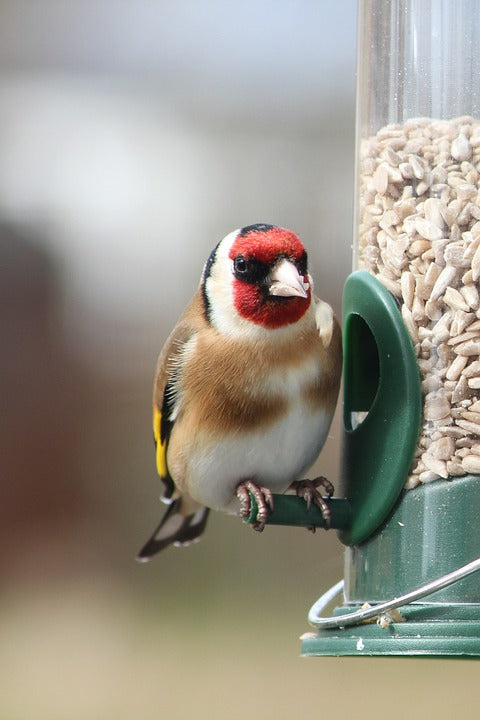
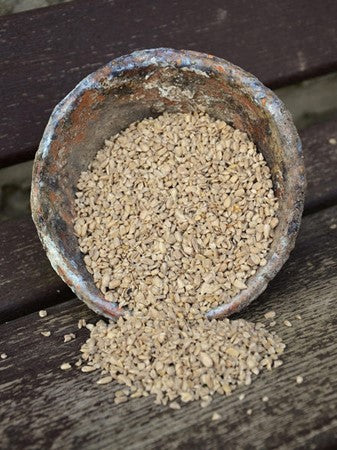
Birdwatching is a deeply rewarding hobby, especially when you’re helping garden birds thrive by providing them with nutritious food. One of the most popular offerings for garden birds is sunflower hearts. These small, shell-free seeds are a favourite for many species, but why are they so good for birds? Let’s explore their benefits and compare them to other bird food options like peanuts. We’ll also delve into whether robins enjoy sunflower hearts and whether birds eat sunflower seeds with shells.
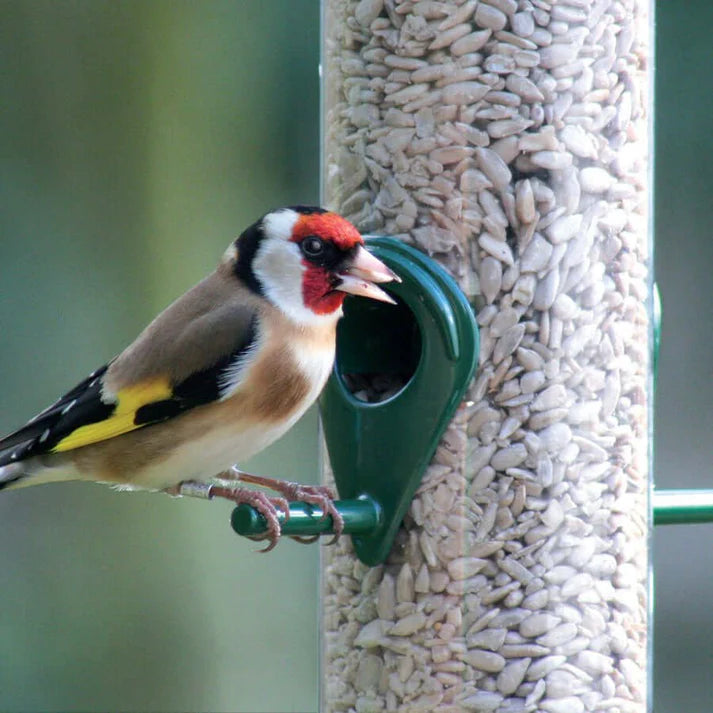
Nutrient-Dense:
(See below for more nutritional information)
Sunflower hearts are packed with essential nutrient that birds need to thrive. They're rich in oils, which provide high energy content, and contain protein, vitamins, and minerals. This makes them particularly beneficial during colder months when birds require extra energy to stay warm.
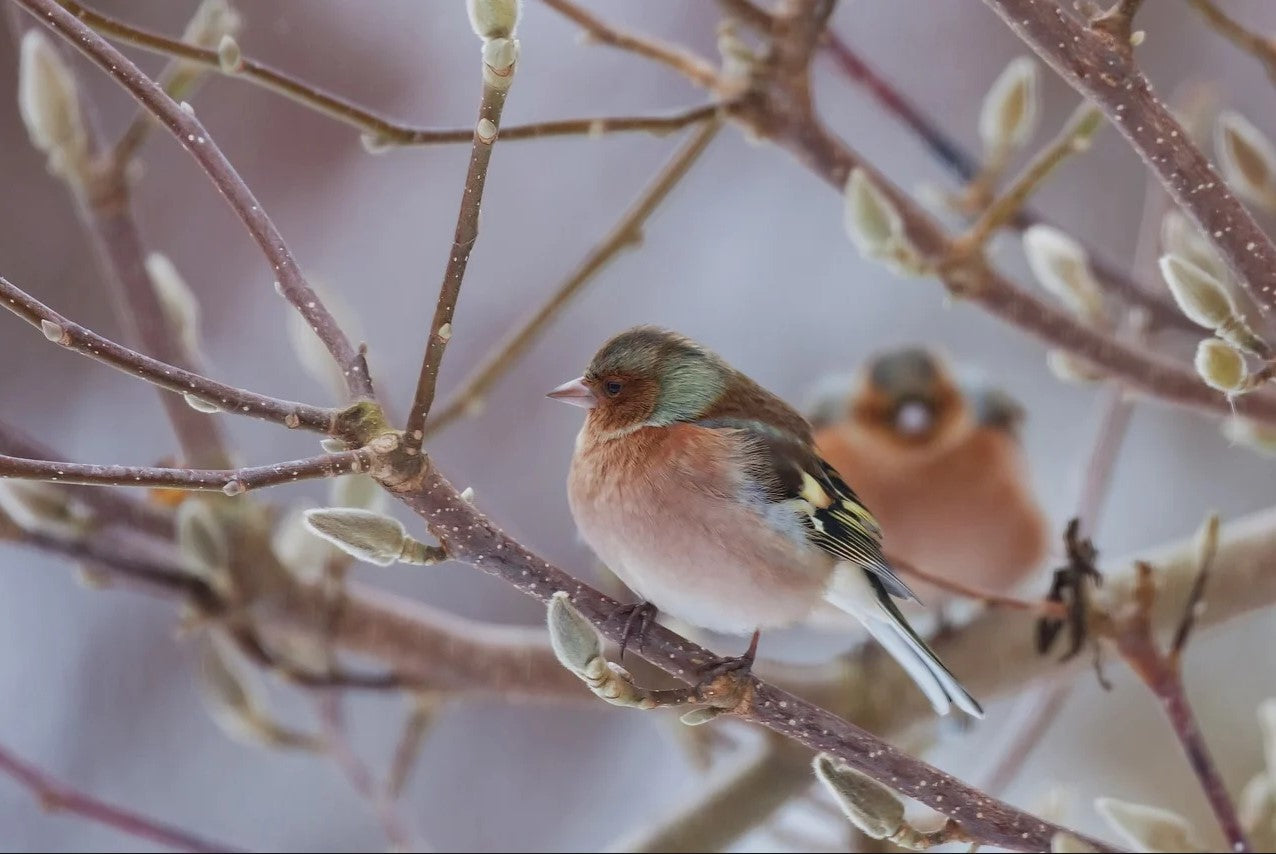
Easy to Eat:
Unlike whole sunflower seeds, sunflower hearts come without the tough outer shell. This means birds can eat them directly without expending energy on cracking them open. This is particularly important during winter when energy conservation is crucial.
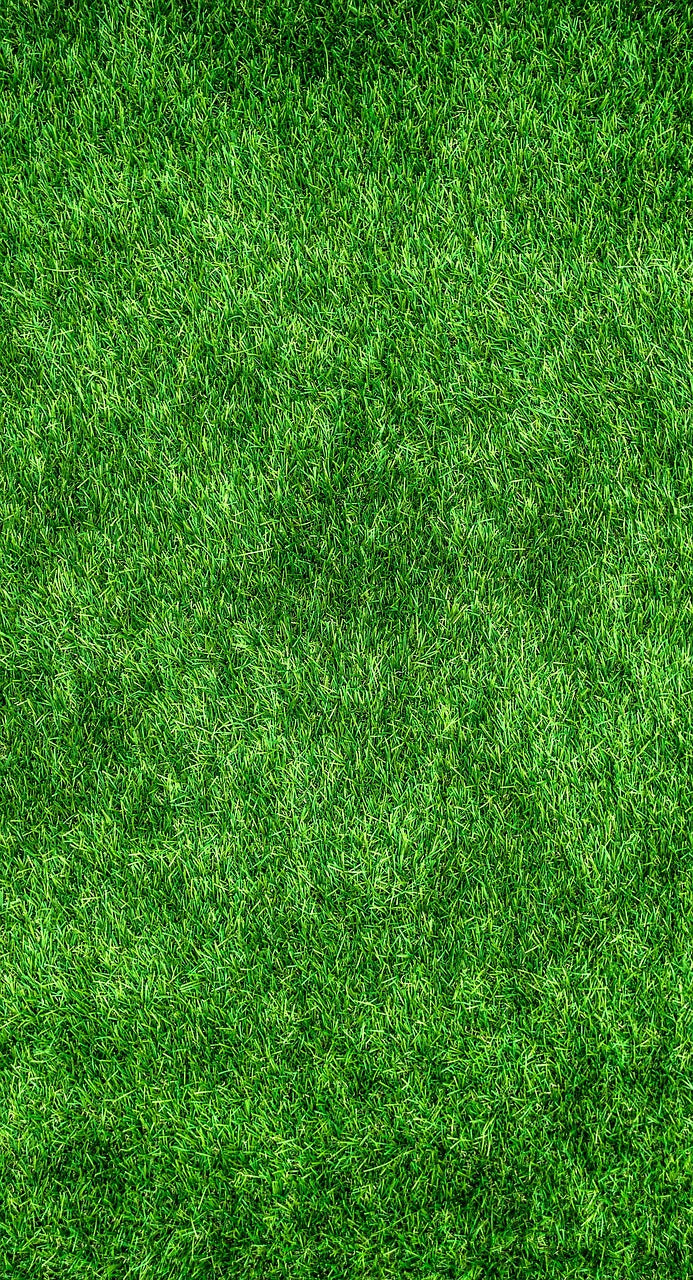
Mess-Free:
Since sunflower hearts lack shells, they won’t leave debris around your feeding area. This keeps your garden or feeding station cleaner and reduces the risk of attracting pests.
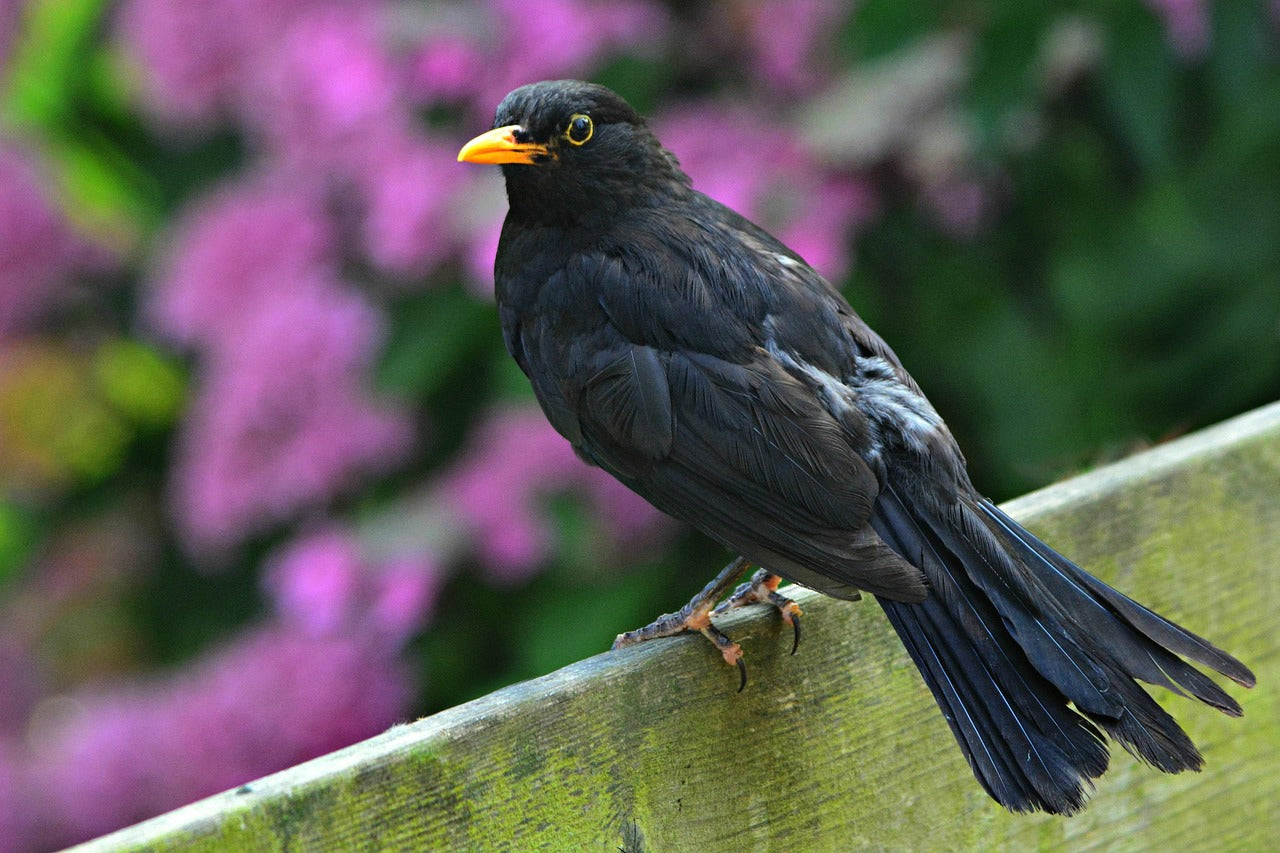
Attract a Variety of
Birds:
Sunflower hearts are a versatile food that appeals to a wide range of bird species, from small finches to larger blackbirds. This makes them an ideal choice if you want to encourage biodiversity in your garden.
HAITH'S to HOME
Sunflower Hearts - Premium Quality
Share






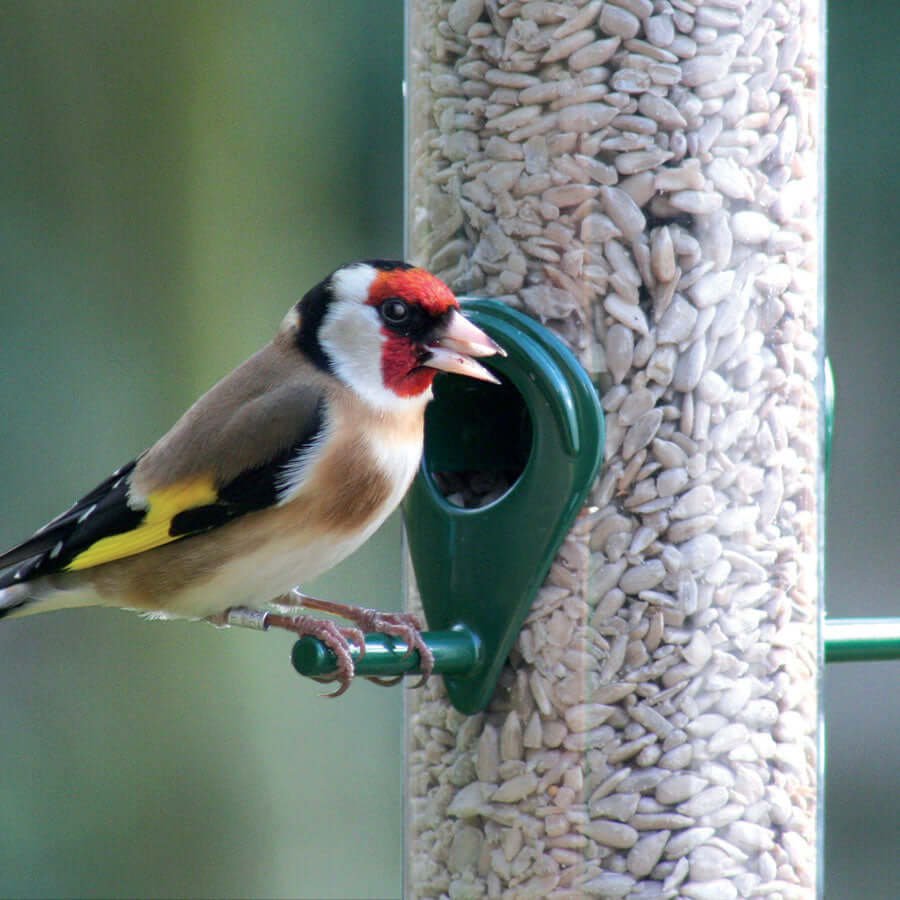
Nutritional Breakdown:
-
Fats:
o Sunflower hearts are rich in natural oils, containing about 50-60% fat.
o These are mostly unsaturated fats, which provide a high-calorie, easily digestible energy source essential for birds to maintain body heat during cold weather. -
Proteins:
o They contain 20-25% protein, which is vital for muscle repair, growth, and maintaining strong feathers - key for insulation and flight.
-
Carbohydrates:
o While lower in carbohydrates than fat and protein, sunflower hearts do provide some quick-burning energy, supplementing birds' immediate activity needs.
-
Vitamins:
o Rich in vitamin E, an antioxidant that supports cell health, boosts immunity, and helps birds combat the oxidative stress caused by harsh environmental conditions.
o They also contain B vitamins, which assist in energy metabolism. -
Minerals:
o They provide magnesium, potassium, iron, and calcium, supporting bone health, muscle function, and overall vitality.
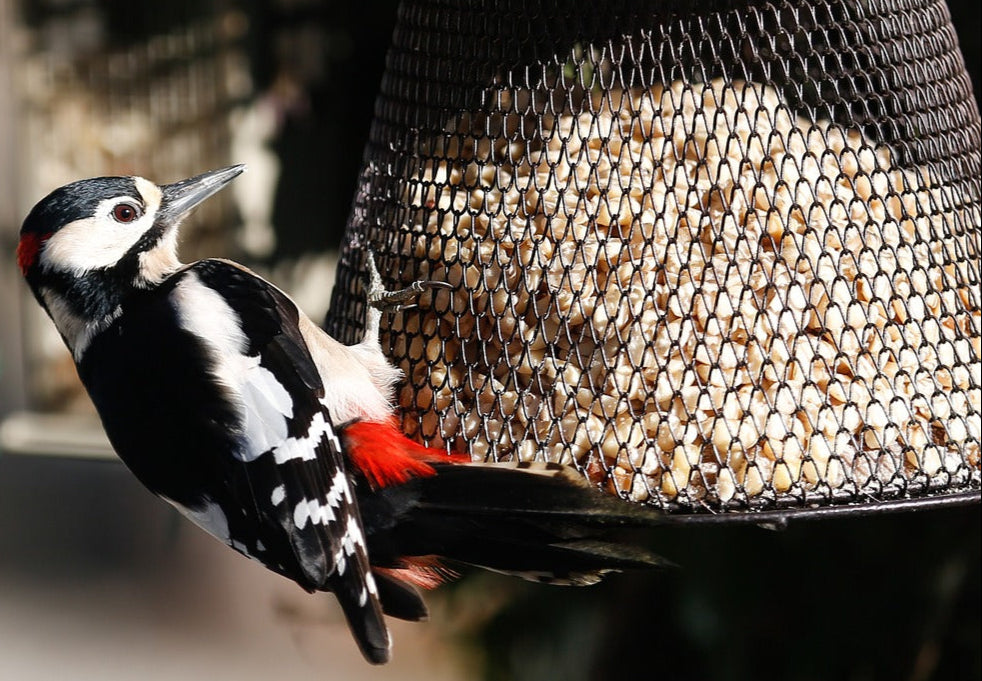
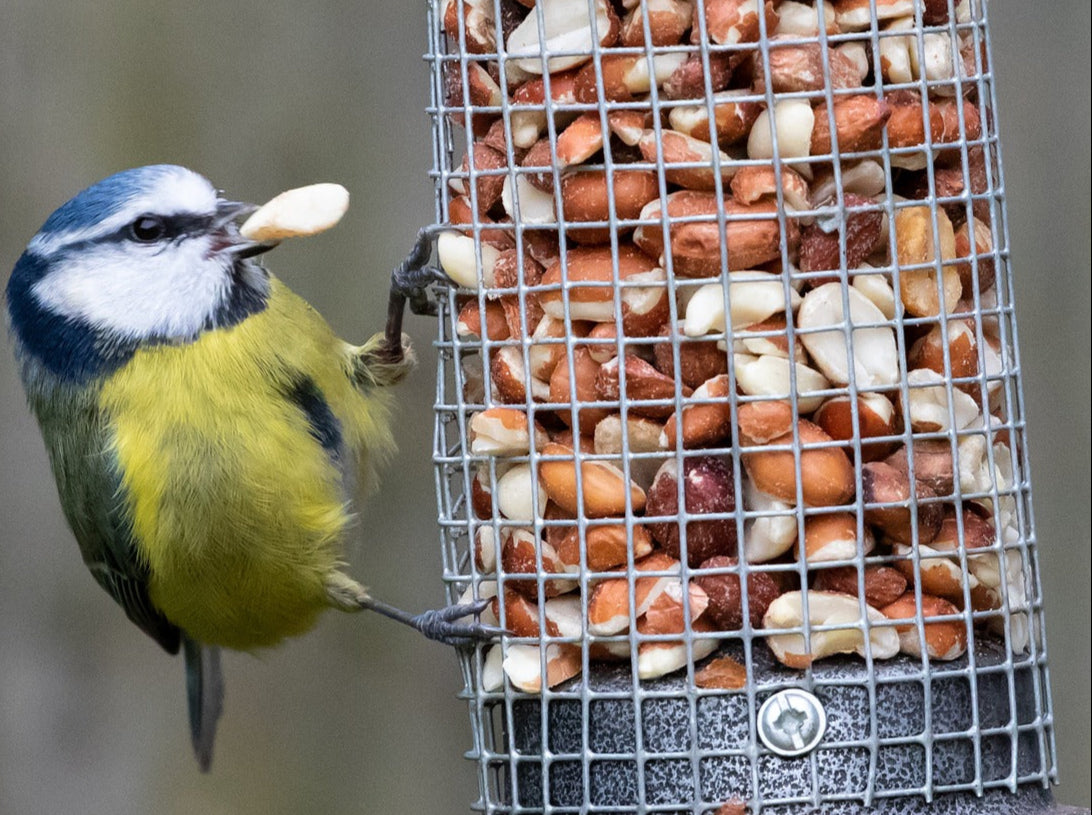
Are Peanuts or Sunflower Hearts Better for Birds?
Both peanuts and sunflower hearts are excellent bird food options, but they serve slightly different purposes. Here’s a comparison to help you decide:
-
Nutritional Value:
o Sunflower Hearts: High in oil and energy, making them ideal for birds that need quick energy boosts. They’re also softer and easier for smaller birds to eat.
o Peanuts: Rich in protein and fats, peanuts are particularly good for helping birds build strength and maintain healthy feathers. However, they can pose a choking hazard if not provided in a mesh feeder. -
Ease of Feeding:
o Sunflower Hearts: Ready to eat straight out of the bag, with no shells to crack. They’re more accessible for smaller birds that may struggle with larger food items.
o Peanuts: Whole peanuts require birds to expend more energy breaking them down. Providing them in crushed form can make them more accessible, especially for small birds. -
Seasonal Suitability:
o Sunflower Hearts: Suitable year-round due to their high energy content and ease of eating.
o Peanuts: Best offered in winter when birds need fats to maintain body heat but should be avoided during nesting season unless they’re crushed or fed in a mesh container, as whole peanuts can pose a choking risk to chicks. -
Both foods have their benefits, but sunflower hearts are generally more versatile and suitable for a broader range of birds.
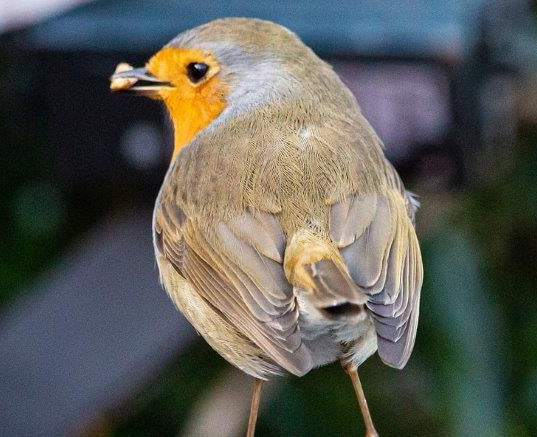
Do Robins Like Sunflower Hearts?
Yes, robins absolutely love sunflower hearts! These charming garden visitors are known for their bold personalities and their preference for soft, easy-to-eat foods.
-

Sunflower hearts tick all the boxes for robins because they’re:
o Soft: Robins have relatively small, delicate beaks, making sunflower hearts an ideal size and texture for them.
o Nutrient-Rich: The high energy content in sunflower hearts supports robins’ active lifestyles, especially during colder months or breeding seasons.
o Versatile: You can offer sunflower hearts in a bird feeder or mixed into homemade fat balls, and robins will happily indulge.
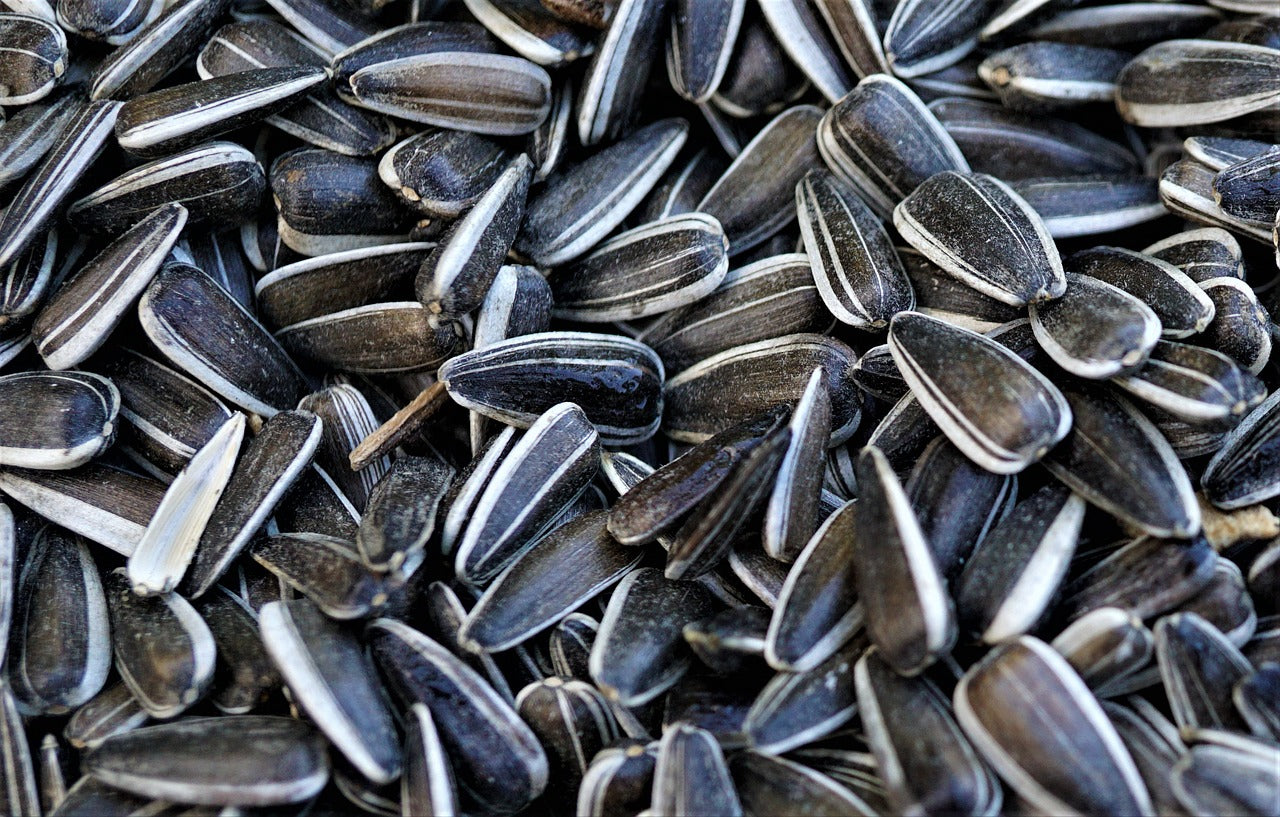
Do Birds Eat Sunflower Seeds with Shells?
-
Yes, many birds eat sunflower seeds with shells, but their ability to do so depends on the species. Here’s how it works:
-

Birds That Can Crack Shells:
o Birds with strong beaks, such as blue tits, great tits, and greenfinches, can easily crack open sunflower seed shells. They use their beaks to split the husks and extract the nutritious kernel inside.
-

Birds That Avoid Shells:
o Smaller birds or species with less powerful beaks may find it challenging to break open the shells. For these birds, sunflower hearts are a much better option as they’re ready to eat without the extra effort.
-

Mess Factor:
o Sunflower seeds with shells can create quite a mess beneath your feeder as birds discard the husks. This can attract unwanted pests or require frequent cleanup, which is another reason many bird enthusiasts prefer sunflower hearts.
-
Overall, while sunflower seeds with shells are a good food source, sunflower hearts are a more inclusive and convenient choice.

Why Sunflower Hearts Are a Must-Have for Bird Feeding
Sunflower hearts are a fantastic option for feeding birds in your garden, offering numerous benefits that make them a top choice for bird enthusiasts:
-
o Year-Round Nutrition: Their high-energy content supports birds through the toughest seasons, from the cold of winter to the demands of raising chicks in spring.
o Convenience: Without shells, sunflower hearts reduce mess and are easy for birds to eat, saving them precious energy.
o Wide Appeal: From robins to blackbirds and finches, sunflower hearts attract a diverse array of species, making your garden a bustling hub of bird activity.

We think sunflower hearts are one of the best products you can feed to your garden birds. Next time you’re restocking your bird feeders, consider the humble sunflower heart, if you don't use them already. It’s a small but mighty seed that can make a big difference to the birds in your garden, ensuring they’re well-fed and full of energy.
-

Sunflower Hearts
Shop our range of Sunflower Hearts, Black Sunflower Seeds and Sunflower bird...
-
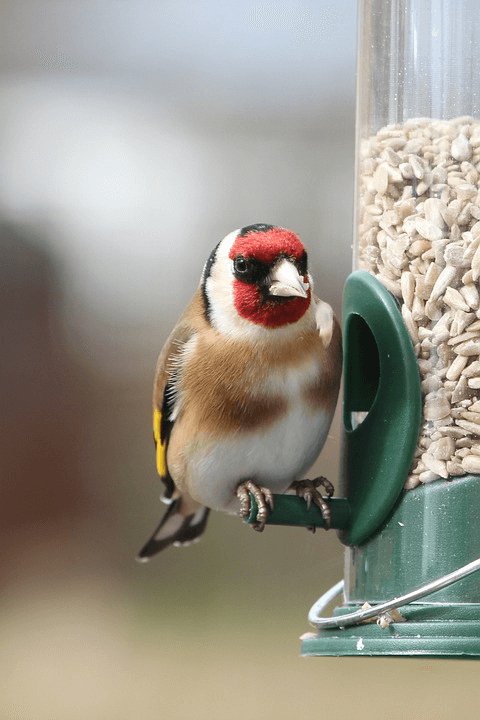
Seed Feeders
Bird feeders are a great way to add some beauty to your...
Written by Angela Cullen








